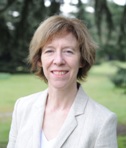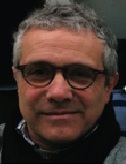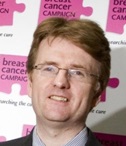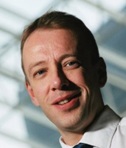Opportunities and challenges in cell therapies

In a panel discussion, leaders in regenerative medicine at King’s College London discuss opportunities and challenges in cell therapies.
The goal of the field of regenerative medicine is to replace damaged or diseased tissue and thereby find cures for diseases that are currently untreatable. At present, two different approaches appear feasible: one is to stimulate the body’s own cells to repair the tissue; and the other is to transplant new cells into the body, but both approaches are classed cell therapies. The drive to move regenerative medicine from the bench to clinic is currently at its strongest and on an international scale, which has resulted in many opportunities and challenges for the field.
What will you learn?
- The regulatory landscape in the UK
- The role of the commercial sector
- Logistics involved in clinical trials
- The future potential of cell-based therapies
Who may this interest?
- Basic researchers in regenerative medicine
- Clinicians involved in regenerative medicine clinical trials
- Regenerative medicine investors
Host

Fiona Watt
Director
Centre for Stem Cells & Regenerative Medicine at King’s College London
Fiona Watt obtained her DPhil from the University of Oxford, and
carried out postdoctoral research at M.I.T, Cambridge, USA. She
established her first lab at the Kennedy Institute of Rheumatology in
London, and then moved to the London Research Institute. From 2006 to
2012 she was Deputy Director of the Cancer Research UK Cambridge
Research Institute and of the Wellcome Trust Centre for Stem Cell
Research, University of Cambridge. She was appointed director of the
Centre for Stem Cells and Regenerative Medicine in 2013 and is also
Director of the UK Regenerative Medicine Platform immunomodulation Hub.
Panelists

Francesco Dazzi
Professor of Regenerative and Haematological Medicine
King’s College London
Francesco Dazzi obtained his medical degree from Padua University
in Italy. He then specialised in oncology at Padova University and in
haematology at Verona University. Francesco held a position as a senior
lecturer and then a reader in transplantation immunology and honarary
consultnt haematologist at Imperial College London in 2000. Francesco
was promoted to Professor of Stem Cell biology in 2006. In 2013,
Francesco was appointed as Professor of Regenerative Medicine and
Haematology at King’s College London and is also currently the Lead for
cellular therapies at Kings Health Partners.

John Maher
Clinical Senior Lecturer
King’s College London
Dr John Maher obtained his PhD in Medicine from University of
London (Royal Postgraduate Medical School). As well as being a clinical
senior lecturer in immunology at King’s College London, John is also a
consultant in immunology at Barnet and Chase Farm NHS Trust. At King’s
College London, John leads the Chimeric Antigen Receptor (CAR) Mechanics
Group which is focussed on using CAR technology to target T-cells
against cancer.

Graham Lord
Professor of Medicine
King’s College London
Graham M Lord MA, MB BChir, FRCP, PhD, qualified in medicine from
Cambridge University in 1991. He undertook a period of research in
transplantation immunology at Imperial College London that led to a PhD
in 2000. After a further period of clinical training, he was appointed
as a consultant in nephrology and transplantation at the Hammersmith in
2003. Professor Lord has built up a research group at King’s College
London investigating T cell and dendritic cell biology and the genetics
of renal disease. Professor Lord is currently Director of the NIHR
Comprehensive Biomedical Research Centre.